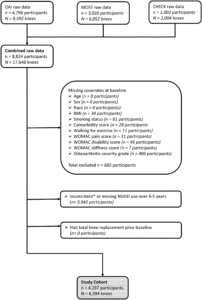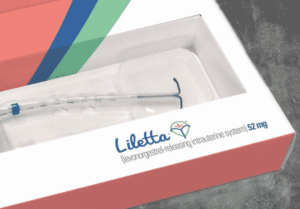Options for Treating Insulin Resistance
Effective Options for Treating Insulin Resistance
Estimated Read Time: 4 minutes
Insulin resistance impacts nearly 70% of individuals with Polycystic Ovary Syndrome (PCOS) and plays a major role in metabolic complications such as high blood pressure, abdominal weight gain, and type 2 diabetes. The most effective strategies to manage insulin resistance include changes in diet, regular physical activity, and the use of medications or supplements when necessary.
Dietary Strategies to Improve Insulin Sensitivity
Focus on Low-Glycemic, Nutrient-Dense Foods
While weight loss can positively influence insulin sensitivity, what you eat—and how you eat it—also plays a critical role. Favor foods that help regulate blood sugar, such as low-glycemic fruits, non-starchy vegetables, and lean protein sources. Anti-inflammatory foods are especially helpful in improving insulin function.
Practice Smart Carbohydrate Management
To better control insulin levels, limit carbohydrate intake to one or two servings per meal—ideally only one-quarter of your plate. It’s essential to space out carbohydrate-rich foods like grains, fruits, legumes, milk, and starchy vegetables throughout the day to prevent spikes in insulin.
Incorporate Regular Exercise to Enhance Insulin Response
Build Muscle to Improve Glucose Use
Exercise is crucial for managing PCOS beyond diet alone. Due to elevated testosterone levels, individuals with PCOS often build muscle more easily, which helps burn calories and enhances glucose uptake—reducing the need for excess insulin secretion.
Aim for strength training at least twice per week to build and maintain muscle mass. Simple daily movements like taking the stairs, walking during breaks, or parking further away can also contribute meaningfully to insulin management.
Use Fitness Trackers to Stay Motivated
Some people find wearable fitness trackers helpful for increasing daily activity. Friendly step-count competitions with coworkers or friends can add fun and accountability to your fitness routine.
Medical Treatments for Insulin Resistance
When Lifestyle Changes Aren’t Enough
If dietary and lifestyle modifications don’t sufficiently improve insulin resistance—especially if confirmed through blood work—your healthcare provider may suggest adding medication.
Note: Many medications used for insulin resistance in PCOS are not FDA-approved specifically for this condition but are commonly prescribed.
Commonly Used Medications
-
Metformin: This is often the first-line treatment. It works by increasing insulin sensitivity and reducing glucose production by the liver. For many women, it helps regulate menstrual cycles and restore ovulation.
-
Glitazones (e.g., Actos): These medications also enhance insulin sensitivity and generally have fewer digestive side effects than metformin. However, they may cause weight gain due to fluid retention.
-
Injectables (e.g., Victoza): Injectable medications combined with metformin and lifestyle changes have shown promising results in PCOS management.
Insulin-Reducing Supplements That Show Promise
Inositol: A Proven Natural Support
One of the most researched supplements for insulin resistance in PCOS is inositol—specifically a combination of Myo-inositol (MI) and D-Chiro-inositol (DCI) in a 40:1 ratio. This blend is considered the most physiologically beneficial and can improve symptoms, metabolic markers, and reproductive health.
Additional Beneficial Supplements
-
N-Acetyl Cysteine (NAC): A powerful antioxidant, NAC has shown effectiveness comparable to metformin in reducing insulin resistance in PCOS patients.
Always consult with a registered dietitian or your healthcare provider before starting any supplement regimen to ensure safety and appropriateness for your needs.
Understanding the Difference: Insulin Resistance vs. Diabetes
While insulin resistance can lead to type 2 diabetes if unmanaged, they are not the same condition. Addressing insulin resistance early—especially in the context of PCOS—can prevent progression and support overall hormonal and metabolic health.
Frequently Asked Questions
Q: Can I reverse insulin resistance with diet alone?
A: For many people, yes—but combining diet, exercise, and sometimes medication yields the best results.
Q: How long does it take to see improvements?
A: With consistent lifestyle changes, improvements can be seen within a few months.
Expert Tips
-
Rotate seasonal produce and trendy food items to keep meals interesting.
-
Use meal-prepping strategies to save time during busy weeks.
-
Be mindful of food allergies or intolerances and choose substitutes accordingly.
Key Takeaways
-
Managing insulin resistance is essential for those with PCOS.
-
A combination of healthy eating, regular movement, and targeted medical support provides the best outcomes.
-
Supplements like inositol and NAC can enhance traditional treatment methods.
Join Our Health & Wellness Community
Want more insights on PCOS and metabolic health? Subscribe to our newsletter and get weekly tips, recipes, and expert advice delivered straight to your inbox.
Subscribe Now










